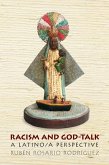Those who serve on mission fields in areas where Christian faith is not the dominant religion quickly come to understand a central truth: when one is sharing the gospel, one must have a place to start the conversation. If the person being addressed is unfamiliar with Christian concepts and terms, one must pick up on things with which he or she is familiar, and relate these to the Christian message. Without this middle ground, there can be no effective witness to God's salvation in Christ. Everyone who shares the good news today, Robert Tuttle points out, would do well to learn this basic truth for communicating the gospel. While the Christian message is universal -- intended for all persons, everywhere -- the language we use to convey this message may not be. The key is always to be sensitive to the deep questions with which one's friends and acquaintances are struggling, and to look for ways to relate the life-changing message of the gospel to these questions. Written in a lively and direct style, Can We Talk? offers a clear, user-friendly guide for finding a "middle ground" for communicating the gospel, a meeting ground from which one can share one's faith.
Hinweis: Dieser Artikel kann nur an eine deutsche Lieferadresse ausgeliefert werden.
Hinweis: Dieser Artikel kann nur an eine deutsche Lieferadresse ausgeliefert werden.









